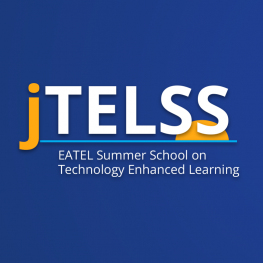Speakers
Yannis Dimitriadis
University of Valladolid, SpainMaria Jesús Rodriguez-Triana
Tallinn University, EstoniaStart
06/06/2023 - 16:00
End
06/06/2023 - 17:30
Ethical dilemmas in (TEL) doctoral research
Tuesday 06/06 16:00-17:30h
Workshop Space B
Abstract
Ethics in research has been widely recognized as a relevant issue. Well-known cases of plagiarism in doctoral theses or fraud in research threatens credibility of researchers. Ethical dilemmas are especially relevant in TEL, where research aims at contributing to enhanced learning and well-being and addressing complex societal issues. While ethical codes, some of them specifically addressing doctoral education, multiple concerns still exist. Students are not fully aware of ethical issues and codes, and they are mostly guided by their intuitive views when dealing with relevant nontrivial ethical dilemmas.
This workshop aims at increasing participants’ awareness of relevant ethical dilemmas in TEL doctoral research via a structured and critical analysis and discussion of relevant ethical dilemmas through case studies using EthicApp. Participants will get familiar with relevant resources prior to the workshop, and they will work on well-selected case studies in groups, to reach consensus, evolving from intuitive views to well thought decisions. An overall discussion of the case studies will follow, and recommendations will be provided towards a critical and responsible stance on relevant ethical dilemmas in TEL doctoral research.
Needs Analysis
Research ethics is gaining more attention due to:
- The increasing body of researchers and globalisation (leading towards greater competition) and technological advances (bringing more possibilities for e.g., plagiarism or misusing AI solutions).
- The emergence of multiple reports and codes of practice concerning academic integrity (e.g., ALLEA Code, or FAIR principles).
- Journals requiring approval of ethics committees.
While HEI may contribute so that researchers acquire the corresponding competencies, a broader culture of integrity needs to be developed in the research community. This need is especially relevant in TEL, which is a human-oriented field that aims at contributing to better learning, and social and individual wellbeing. In line with the interest raised in the DE-TEL book on ethics, this workshop will expose participants to ethical dilemmas (some transversal across disciplines and some TEL specific) for the development of research ethics and integrity competencies.
Learning Objectives
The participants will be aware of ethical codes and relevant ethical dilemmas in research, which directly affect them in their doctoral work and the posterior professional research trajectory. They will eventually enhance the corresponding competencies mainly through an intensive case-based group work on relevant dilemmas. Most concretely, they
- Become aware of existing reports and codes of practice concerning research ethics and integrity that could guide the participants in their research;
- Recognize and reach consensus on relevant ethical dilemmas related to their doctoral research work in the TEL field, and more generally in their personal research trajectory;
- Learn though a practical experience on relevant real-life dilemmas as related to codes of conduct;
- Understand the advantages of working collaboratively in groups and taking decisions based on arguments for non-trivial dilemmas.
Pre-activities
Before the workshop, please fill out the following questionnaires by Monday June 5th, 24:00 at the latest:
- An informed consent form, so that data may be used in the research study that we are carrying out regarding Ethics in Research
- The validated Moral Foundations Questionnaire
- A simple profile questionnaire on ethics in research
Also, during the session, we’ll use the online tool EthichApp. To ensure that we have everything ready, we would kindly request you to create an account following the instructions provided here.
Session Description
Students work in 5 steps on a case on ethical dilemmas in TEL doctoral research supported by EthicApp (50m).
- Respond to a vignette with a dilemmatic question intuitively without justification or reading case details.
- Read a short real-based case with an ethical dilemma in TEL doctoral research and answer the same step 1 vignette.
- Participants are accurately exposed to an ethical dilemma associated with the case and are asked to justify their decision.
- Answer collaboratively to the step 1 vignette. Here, participants can see their classmates’ answers to the previous step, communicate anonymously via short messages, and agree on the same Likert scale, providing each one their justification.
- Answer the same step 1 vignette.
Once all steps are over, each group orally presents their case and provides solutions/ answers to questions (30m). Discussion concludes the workshop with an overview of relevant issues and guidelines for the participants’ research work.


